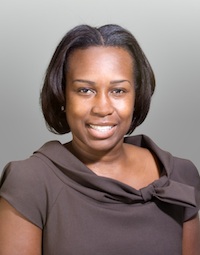A fourth grade teacher at Pierre Capdau Charter School got a $43,056 bonus — more than 75 percent of her annual salary — based solely on improvements in her students’ test scores last school year.
In all, five teachers received more than $24,000 apiece, totalling $167,669 — nearly half the allotment available to all New Beginnings staff.
Deborah Williams wasn’t the only teacher at Capital One New Beginnings Charter School Network who took home a sizable bonus this winter, records show.
In all, five teachers were awarded more than $24,000 apiece, totaling $167,669 — nearly half the allotment available to all New Beginnings staff. And according to the original terms of the program, they should have gotten more.
Williams told The Lens on Friday afternoon that her take-home pay was much less than $43,000. After deductions for taxes and retirement, she took home $23,735, according to New Beginnings’ current CEO Sametta Brown.
Despite the bonuses, Capdau is still rated a D by the state. The year prior, it was a D-minus.
The sizable payouts show how one charter school organization has tried to get its teachers to perform in the face of high-stakes student testing. Year-end tests factor heavily into the state’s evaluation of schools around the state. If a charter school doesn’t demonstrate that its students are improving, the state can revoke its charter.
A lot rides on these tests, and the payouts demonstrate that.
But while Williams’ students boosted their average test scores by 88 percent over the course of the school year, they didn’t show the highest increase among all classes.
“Their risk is higher. So I think the reward should be higher.” — Vera Triplett, former New Beginnings CEO
That distinction belonged to Ashleigh Pelafigue, whose students posted a 165 percent gain. But because she teaches kindergarten — and those test scores don’t factor into the state’s evaluation — she received just $4,086.
Vera Triplett, the former New Beginnings CEO who set the bonus system in motion, said she equally values all teachers but wanted to offer higher incentives to those teachers under the most pressure.
“Their risk is higher,” Triplett said, “So I think the reward should be higher.”
Bonus plan lagged as leadership changed hands

Though school leaders discussed a bonus system in 2011, records show Triplett first shared the details of the bonuses in a May 2012 memo that stated that they would be calculated solely on gains in student test scores over the course of the school year. “Please note that K-2 teachers merit pay bonuses cap at $5,000,” she wrote.
New Beginnings — a group of charter schools that serves almost 2,000 students in three elementary schools and one high school — allotted about $722,000 of a $2.3 million federal grant for a bonus system at its elementary schools, Capdau, Medard H. Nelson and Gentilly Terrace.
The goal was to improve teacher retention and student test scores and offer more competitive pay. The grant funds from the U.S. Department of Education’s Gulf Coast Recovery Grant Initiative were supposed to have been spent by August of 2012, but New Beginnings was granted a one-year extension.
Williams’ bonus alone was just below the average teacher’s salary of $45,781 at New Beginnings, according to the organization’s audit for the year ending June 30. Williams’ base salary in 2011-12 was $56,000, according to school records.
Triplett’s memo said that teachers would receive a bonus only if they returned to New Beginnings the following year. She then left New Beginnings in June.
New Beginnings’ current CEO Sametta Brown started in September. On Dec. 31, she decided to adhere to Triplett’s pay scale and award the bonuses.

“Basically we are honoring a memo and the formula as described in the memo,” Brown told The Lens. “It was a promise made to staff and I’m pleased we were able to live up to that promise.”
She did make “a few changes in terms of a cap and the recalculations.”
While it doesn’t appear that school staff were initially involved in determining the bonus structure, Brown said she allowed them to decide when and how much would be given out. The staff decided to split the $722,000 equally over two payouts: half in December, for the 2011-12 school year, and half later this spring for bonuses earned for the current school year.
The Payout
The Lens initially requested the formula for the bonuses in November 2011. Stephen Osborn, who was then chief operations officer for New Beginnings, responded that the information was “proprietary.” Eight months later, The Lens received a copy of Triplett’s memo.
It said that all teachers were given a classroom score, an average of their students’ previous test scores, at the beginning of the 2011-12 school year. Depending on the score, teachers had to improve it by either 5 percent or 10 percent. However much scores increased, teachers would receive the same percentage in bonuses.
Though bonuses for kindergarten, first- and second-grade teachers were capped at $5,000, teachers in higher grades were not. And teachers in third, fourth and eighth grades were eligible for an additional $2,500 if they met growth targets.
A fourth-grade teacher received the biggest bonus at New Beginnings despite the fact that her class didn’t show the greatest growth during the 2011-12 school year.
At ReNEW schools, a similarly-sized charter school network in New Orleans, $2,500 was the largest award a teacher could receive. ReNEW serves about 2,400 students across four schools.
Besides the teacher bonuses, assistant principals at ReNEW could get $5,000 and principals up to $10,000. The network participated in the Teacher Incentive Fund last year, which uses a more complex formula for teacher bonuses.
“It’s essentially a value-added award, and not a retention bonus,” said ReNEW president Kevin Guitterrez.
All ReNEW teachers, regardless of grade or subject, were eligible for the award, but at New Beginnings, the focus was on third through eighth grades.
In a February interview with The Lens, Triplett said that’s because those test scores factor into the school’s School Performance Score — a state-issued score that determines what letter grade a school will receive for the year. Performance scores are derived from a formula based on student test scores and other data such as graduation rates and course completion.
“There was a cap on K-2 because they don’t have high-stakes testing,” Triplett said.
Williams, a fourth-grade teacher, received the biggest bonus at New Beginnings despite the fact that her class didn’t show the greatest growth during the 2011-12 school year. On top of that, she was eligible for the additional $2,500 because she taught in a high-stakes testing grade.
Williams told The Lens she had no idea that she received the highest bonus, and she complained about being singled out. “You have everyone thinking I’m a bad teacher, we have a bad school and I received all this money. … I feel that I am a good teacher, and I was no part of deciding how much I received.”
Many teachers did not get as much as they were supposed to, because the calculated bonuses ended up exceeding the $361,000 allotted for the 2011-12 school year. The December payments were about 20 percent lower than they had been promised.
The Lens emailed all teachers, including Pelafigue and Williams, whose names are listed on the New Beginnings website. Five teachers responded, but just one was willing to go on the record.
“I just wish communication from the higher-ups in the network was more professional and timely.” — Walter Bridges, teacher
Walter Bridges, a second-year teacher at Capdau, contacted The Lens in mid-December when he said he was told by his principal he would be receiving a bonus. In January, after Bridges said he had not received a bonus, The Lens asked New Beginnings whether all bonuses had been paid. Bridges said he was later told by his principal he would not receive a bonus and it had been a miscommunication.
“I just wish communication from the higher-ups in the network was more professional and timely,” Bridges said about the bonus program.
Pay-for-performance
Bonuses have become a popular tool as education reformers focus more on student outcomes as a measure of teacher success.
“Student performance is what we are all about,” said Brown when asked why the bonus was based on just one factor.
“There’s no evidence that tying bonuses to student achievement itself is an effective way to improve student learning.” —Laura Hamilton, behavioral scientist at RAND Corporation
Some differ.
“There’s a feeling in the field now that you should use students’ performance as one measure,” said Laura Hamilton, a senior behavioral scientist at RAND Corporation, a nonprofit research and development think-tank, “but it shouldn’t be the only measure.”
Hamilton said she had never heard of a teacher getting more than a 75 percent bonus. “Usually the measure to award the bonus is more complex,” she said.
Hamilton said the goal in these complex bonus formulas is to control for variables that are outside of a teacher’s control, such as student demographics. Many bonus formulas add in additional measures, such as teacher observations or student surveys.
Competitive Market
Brown said incentive programs hold promise for administrators like herself.
“I think it is important that teachers are rewarded for their efforts and that incentives will allow us to attract the best,” Brown said.
But Hamilton said research indicates bonus systems can have limited results.
“There’s no evidence that tying bonuses to student achievement itself is an effective way to improve student learning,” Hamilton said, regardless of whether they’re based on the performance of an individual teacher, a team, or an entire school.
It’s not clear if the bonus program was responsible for improvement in student test scores. Triplett’s formula memo was distributed in May, nine months into the 2011-12 school year as school was winding down — and after students had taken their tests. But it is possible teachers knew before then that they would be rewarded for student testing gains.
Moreover, Hamilton said there is a risk teachers may behave differently — “like excessive teaching to the test and possibly cheating” — when teaching in such a high-stakes environment.
New formula on its way?
When first interviewed in December about the bonus system set in motion by her predecessor, Brown told The Lens she would consider changing the formula in the future.
“I don’t perceive that future bonuses will amount to 50 percent of their salary.” — Sametta Brown, current New Beginnings CEO
But, she said, she felt she needed to honor Triplett’s memo the first time around. “I believe in using several factors to determine incentive,” Brown said. “I don’t perceive that future bonuses will amount to 50 percent of their salary.”
Brown said she would get input from teachers before creating a new formula and awarding the second round of bonuses — an apparent departure from what happened when Triplett created the system. Though the original grant terms called for two task forces — one staffed by teachers — to help determine the bonus pay structure, The Lens learned from a lawyer for New Beginnings that that committee never materialized.
On Wednesday, as The Lens prepared to publish its story, Brown said she was working on a new formula with input from teachers and administrators but didn’t want to disclose its details until next week, after she has a chance to share it with employees.
This story was updated to include Deborah Williams’ take-home pay and to add her comments about the bonus system.

